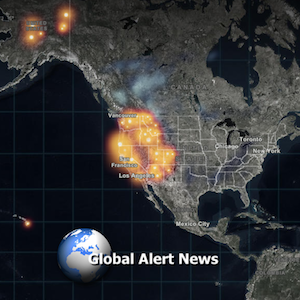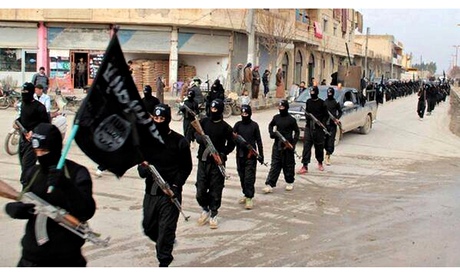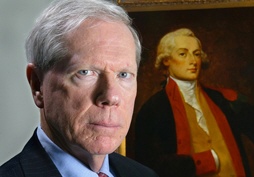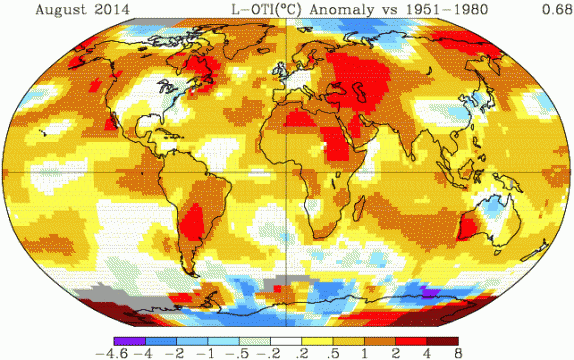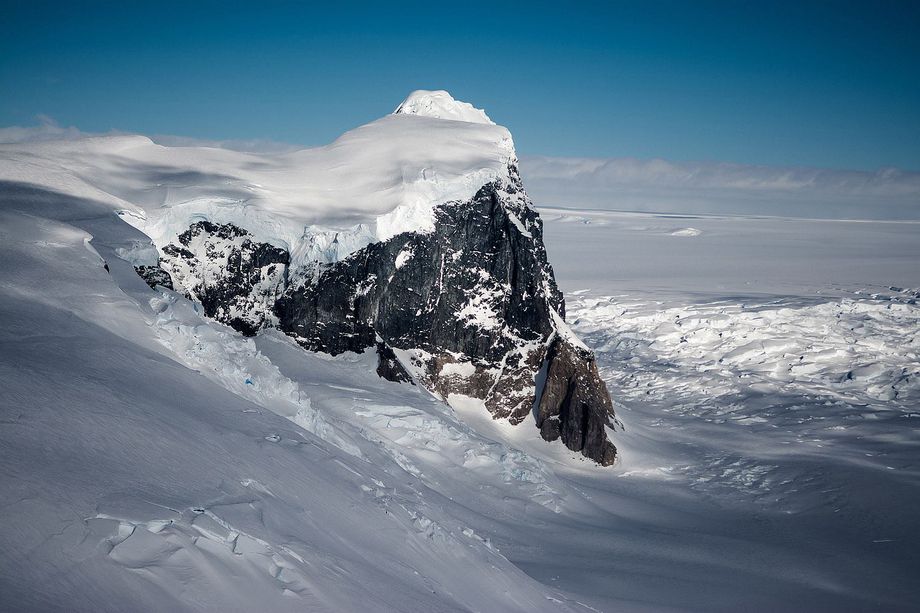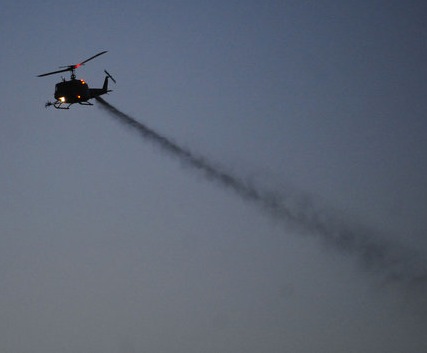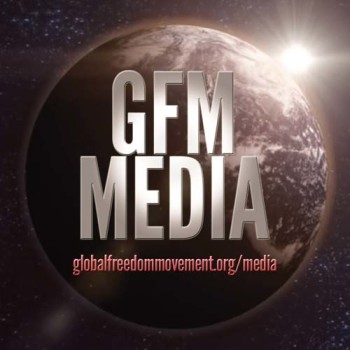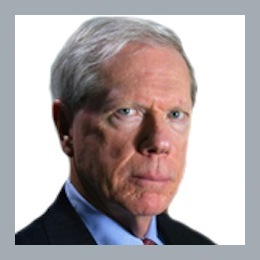http://www.bbc.com/news/world-us-canada-29699876
Canada PM: St-Jean-sur-Richelieu hit-and-run man ‘radicalised’
A man who struck two Canadian soldiers with his car before he was shot dead by police had been “radicalised” and was known to security officials, Canada’s prime minister has said.
The 25-year-old, identified in local media as Martin Couture Rouleau, was killed by officers at St-Jean-sur-Richelieu in Quebec after a car chase.
One of the soldiers died on Tuesday, the other has minor injuries.
PM Stephen Harper said Rouleau had been “radicalised”.
An official familiar with the case told the Associated Press that Rouleau had been influenced by extreme Islamists.
High-speed chaseOn Monday, Rouleau ran down the two members of the military in a car park near a Canadian military office, police told local media. It was not immediately clear if the soldiers were in uniform.
He fled and was chased by police at high speed for about 4km (2.5 miles), until the car drove off the road and rolled over several times.
He then left the car and police opened fire, the Montreal Gazette reported. The shooting took place at St-Jean-sur-Richelieu, about 42km (26 miles) south-east of Montreal.
Rouleau was taken to hospital where he died some hours later.
Television pictures showed a large knife on the ground near the crashed car.
“The individual who struck the two [Canadian Armed Forces] members with his car is known to federal authorities, including the Integrated National Security Enforcement Team,” Mr Harper’s office said in a written statement on Monday evening. “Federal authorities have confirmed that there are clear indications that the individual had become radicalised.”
Police and Mr Harper’s office did not give further details.
The family of the dead soldier has requested that his name not be released.
October 22: National Day of Protest across US against Police Brutality and Repression
More than 50 Cities Nationwide
Protests on October 22 against intensified police killings, tortuous conditions being inflicted on tens of thousands of incarcerated people, and young people treated like criminals, guilty until proven innocent if they can survive to prove their innocence, will mark 19 years of the annual National Day of Protest to Stop Police Brutality, Repression and the Criminalization of a Generation. Continuing defiant protests in Ferguson, MO, in response to the police killing of Michael Brown are part of heightened resistance to police murder all across the country.
Against this backdrop, people in more than 50 cities across the U.S. are planning to take to the streets and act in other ways on Wednesday. The Organization for Black Struggle has called for civil disobedience outside the jail where people arrested in Ferguson have been imprisoned. A march is planned in Ferguson from the site of the murder of Michael Brown to the police station. In NYC, organizers are waging a battle to be allowed to take the October 22 march, and their message that police brutality must STOP into Times Square and before the eyes of the world.
This year the annual protests are part of an October Month of Resistance to Mass Incarceration which was initiated by Cornel West & Carl Dix. Cornel and Carl were both arrested in Ferguson in October as they participated in and amplified the protests in Ferguson.
The Month of Resistance has garnered the support from notable figures such as Chuck D, who recorded a Pledge of Resistance, and Alice Walker, who wrote a poem “Gather”, dedicated to West and Dix. It has also included protests against attacks on immigrants and deportations, panels and assemblies on High School and College Campuses, and support from the Faith based community where over 30 churches/synagogues have lent their moral influence to speak out against mass incarceration and police brutality.
Carl Dix, speaking in Ferguson, stated:
“October 22 is a day when those who have suffered the devastation of police murder have a platform to speak about this. And when others throughout society are rallied to stand with them in the fight to STOP police murder…Are we going to stand aside while police wantonly murder Black youth, or are we going to act now to put up a big STOP SIGN to the horrors the criminal injustice system enforces on tens of millions of people?”
Alba Summit on Ebola: Latin American Leaders Meet Cuban Health Workers Heading to West Africa
A profoundly moving moment came yesterday, after the conclusion of the ALBA-TCP Ebola Summit, when regional leaders attending the event met with members of the Cuban medical brigades departing today, October 21, to Liberia and Guinea Conakry, to battle the epidemic impacting these West African nations.
At the Pedro Kourí Institute of Tropical Medicine (IPK), Cuban Minister of Public Health Roberto Morales Ojeda announced that the new brigades are composed of 91 health professionals, 53 headed to Liberia, and 38 to Guinea Conakry. As a group, they average 15 years of experience, he reported, adding that 39 are doctors, 48 nurses, and 67 % are under 50 years of age.
“These are our troops departing tomorrow,” President Raúl Castro told visiting ALBA leaders, as he asked individual brigade members about their experiences on other international missions. Two doctors preparing to leave reported that they had previously participated in five other missions.
Jorge Pérez, IPK director, summarized the history of the renowned institution and its current objectives, including the role it is playing in confronting Ebola.
He explained that the Institute had set up a vigilance ward for travelers coming from areas impacted by Ebola, and has provided training on treatment for brigade members. He presented a series of photos depicting the strict protection measures brigade members would be taking, and some of the safety precautions they would be use while working with Ebola patients.
Following this gathering, ALBA leaders visited the Medical Cooperation Central Unit (UCCM), located in the Havana municipality of Boyeros, where all medical personnel participating in international missions is trained – a total of more than 50 000 who have served in 66 countries, according to Health Minister Morales, who said, “The presence of all of you here encourages us to continue upholding the legacy of Fidel and Raúl, to reaffirm that what we are doing is for humanity, for the real possibility that a better world is possible.”
Leonardo Fernández, 63 years of age and departing for West Africa, briefly described his experiences on missions in Nicaragua, Pakistan, Timor Leste, Haiti and Mozambique. “We are not mad,” he said, “We are determined doctors, trained by the Revolution, and we are sure we will return healthy.”Concluding the tour, President Raúl Castro bid farewell to each individual participant in the extraordinary ALBA Summit on Ebola, who all again expressed their gratitude to Cuba, the government and people, for the commitment to making ALBA an alliance for life.
***
German MFA Deputy Head of Division for Export Control Markus Klinger provided a paper to the US consulate’s Economics Office (Econoff), “seeking additional assurances related to a proposed export of extremely dangerous pathogens.”
Germany subsequently made two follow-up requests and clarifications to the Army, according to the unclassified Wikileaks cable.
“This matter concerns the complete genome of viruses such as the Zaire Ebola virus, the Lake Victoria Marburg virus, the Machupo virus and the Lassa virus, which are absolutely among the most dangerous pathogens in the world,” the request notes.
The Zaire Ebola virus was the same strain of Ebola virus which has been rampaging through West Africa in recent months.
“The delivery would place the recipient in the position of being able to create replicating recombinant infectious species of these viruses,” the cable notes.
However, it also points out that Germany has in place an “exceptionally restrictive policy,” adding that approval would not be granted to the export until US assurance was provided.
“A decision about the export has not yet been made. Given the foregoing, we would appreciate confirmation that the end use certificate really is from the Department of the Army and of the accuracy of the data contained therein,” the document stated.
There is no follow-up document available to confirm whether the US Army eventually provided Germany with the necessary guarantees.
Bioweapons were outlawed in the Biological Weapons Convention of 1972 and was signed and ratified by 179 signatories, including Germany, the US and Russia.
It dictates that signatories, “under all circumstances the use of bacteriological (biological) and toxin weapons is effectively prohibited by the Convention” and “the determination of States parties to condemn any use of biological agents or toxins other than for peaceful purposes, by anyone at any time.”
TEPCO removing protective Fukushima canopy for most dangerous op yet
The canopy was installed by TEPCO, the plant’s operator, in 2011 to mitigate the damage done to the plant in the 2011 earthquake and tsunami, which led to one of the worst nuclear disasters in human history.
On October 22 it started to take the construction apart using a crane-mounted drill to make 30sq cm holes in one of the structure’s six panels, The Asahi Shimbun reports.
After the holes were drilled, the workers coated the inside of the building with special anti-scattering resin to ensure that radioactive materials still lingering after reactor meltdown would not be agitated.
The inside of the building contains a significant amount of debris left after a hydrogen explosion following the disasters. The operation will therefore require the installation of cameras inside to survey the area.
The dangerous next step in the decommissioning process comes in 2016-2017, when the workers will proceed to remove the rubble and garbage, followed by an extremely delicate process for the removal of spent nuclear fuel rods from cooling pools.
Watch our brief explanation below of what this entails.
READ MORE: Fukushima operator says “sorry” as workers erect protective cap
TEPCO can’t complete some of its objectives at this time, as it has other more pressing matters to deal with – the erection of frozen soil walls under and around Reactor 1 to keep the escaping radioactive water from seeping into the Pacific Ocean.
The plant was plagued by numerous faults, both natural and man-made, which led to a number of leaks and consequent structural damage, releasing massive amounts of radiation into the water.
One such incident was in August 2013 and involved Reactor 3, where the removal of debris led to contamination of workers as far as 500 meters away.
TEPCO has also faced a massive backlash from the government, foreign observers and Japanese citizens for its unsatisfactory handling of the crisis resulting out of the 2011 tragedy.
As though human error weren’t enough, it turned out in early October that the level of radioactivity in water around the plant has risen to record highs, following a typhoon that passed through the Japanese coastline.
READ MORE: Radiation levels at Fukushima rise to record highs after typhoon
Specifically, levels of the radioactive isotope cesium are now at 251,000 becquerels per liter, three times higher than previously recorded levels.
Cesium, which is highly soluble and can spread easily, is known to be capable of causing cancer.
The scary part about the escaping radioactive material all this time later is that no one truly knows the scope of the problem and how best to approach it. Some other measures apart from constructing frozen soil walls involved pumping off groundwater. They all had varying levels of success.
Police Repression in Haiti: Thousands March Demanding President Martelly’s Resignation – Hundreds Faint from Tear Gas
Martelly Dances on Dessalines’ Grave
On Oct. 17, the 208th anniversary of the assassination of Haiti’s founding father Jean-Jacques Dessalines, tens of thousands of demonstrators took to Haiti’s streets, once again, to demand the unconditional resignation of President Michel Joseph Martelly.
In an effort to undercut the protest, Martelly and his Prime Minister Laurent Lamothe did what they do best: they organized a one-day Carnival, with big-name bands like Djakout and T-Vice (and, of course Martelly’s son, Ti Micky), on the former runway of the old military airport near Pont Rouge, where Dessalines was killed in an ambush in 1806. The government publicized the festive extravaganza, so disrespectful on such a somber occasion, via recorded robot messages over the Digicel cell phone network.
But most of the Haitian masses shunned the unfitting spectacle and instead marched to demand Martelly and Lamothe’s resignations, an end to the UN military occupation (renewed three days earlier for another year) and to political persecution, arrests, and assassinations. Demonstrators also marched in Jacmel in the Southeast, in Sainte-Suzanne in the Northeast, and in Léogane, Petit Goâve, and other cities.
In Port-au-Prince, demonstrators marched along the Delmas Road to Pétionville under the slogan, “Dessalines pral kay Pétion,” Dessalines is going to visit Pétion. Alexandre Pétion, who conspired in Dessalines’ murder and succeeded him as Haiti’s president, was a representative of Haiti’s nascent comprador bourgeoisie.
As they did against demonstrators on Sep. 30, the Haitian National Police (PNH) tried to disperse the demonstrators with tear gas and skin-irritating pepper water. Police and armed thugs were also observed firing leveled weapons at demonstrators.
As some demonstrators assembled at a rally point in front of the former Church of Perpetual Help in the Bel Air neighborhood, thugs affiliated to the musical group Grand Black – such as Ti Roi, Didi Manikile, and Evens Thélemas – beat up and fired weapons at protesters, and then tore up fleeing protesters’ placards.
However, the demonstrators from Bel Air joined other marchers gathering in front of the ruins of St. John Bosco church on Jean Jacques Dessalines Boulevard (Grand Rue). After the traditional ceremony around a bonfire, the march stepped off and passed through the popular neighborhoods of La Saline, St. Martin, and Bel Air before heading towards the Delmas Road to proceed as planned to Pétionville.
But the police and thugs blocked the marchers from taking the Delmas Road so they detoured through the Solino neighborhood to the Nazon Road in hopes of finally reaching the Delmas Road that way. But on Nazon, police fired tear-gas canisters into the dense crowd to prevent them from reaching Nazon’s intersection with the Delmas Road.
“Down with Martelly!” chanted the demonstrators. “Martelly said he’d kill us, the people. Quickly, quickly, let’s send him packing. Onward to Pétionville!”
The Dessalines Coordination party (KOD) contingent held signs that read: “Down with Martelly and Lamothe! Both are lackeys of the colonists!”
Along the march route, hoodlums hiding behind walls threw rocks at the demonstrators. But the determined protesters pressed on. At Delmas 30, they again tried to reach Delmas Road. But the police again met them with tear gas, pepper water, and leveled gunfire. Noone was spared: political party leaders, parliamentarians, protesters, journalists, children, merchants, and public transportation passengers, all inhaled gas.
Teargas canisters were fired at a car clearly marked with the logos of Radio Vision 2000, which carried several journalists. Hundreds of people fainted from tear gas. Children had to be taken to hospital emergency rooms.
Senator Moïse Jean-Charles, the spearhead of this mobilization who rode on a horse behind a demonstrator dressed like Dessalines, was clearly targeted for attack by some PNH units. At Delmas 30, he was also overcome by the teargas, prompting some demonstrators to start screaming “Moïse is dead!” The senator was revived by people rubbing limes under his nose and pouring soda over his head.
“This is a peaceful demonstration to commemorate Dessalines’ assassination, and the PNH is dispersing it,” Sen. Moïse said afterwards. “Today Martelly shows us once again that he does not want democracy and is politicizing the country’s police force.” (Later in the day, Police Chief Godson Orélus, dressed in a white uniform, stood grinning on the Carnival stage as President Martelly vulgarly danced with a woman.)
In the end, there were dozens of arrests and injuries. The protesters arrested were taken to the Delmas police station, and, without hearing before a justice of the peace, 19 were transported to the National Penitentiary. Among them are: St. Gourdain of Delmas 2, and Ralph Laudan Louis and Evens Clergé Jeff from the Christ-Roi district.
There are reports that the attack against Senator Moïse was aimed at assassinating him. Indeed, it is widely rumored that such a plan was hatched at a meeting involving Communications Minister Rudy Hériveaux, Sports Minister Himmler Rébu, Interior Minister Réginald Delva, Reynaud Léné of the Defense Ministry, and Police Chief Godson Orélus with some of his aides including Samuel Moreau and John Alexis, a former member of the New York diaspora organization HEAR (Haitian Enforcement Against Racism) and a unionist at 1199.
There were many political reactions after the police dispersed the demonstration. The Fanmi Lavalas political organization, in a press statement read by the coordinator of the Executive Committee, Dr. Maryse Narcisse, condemned the crackdown when the “sons of Dessalines were extending a hand to the sons of Pétion” to resolve the structural problems which have plagued Haiti since the Feb. 29, 2004 coup d’état. She also demanded the liberation of all the protestors illegally arrested and decried the police attack on professional journalists.
Former Senator Turneb Delpé of the Patriotic Movement of the Democratic Opposition (MOPOD), one of the march’s organizers, thanked the people for taking part in the anti-Martelly protest and condemned that the police who used tear gas and pepper water to prevent protesters from reaching Pétionville. He said that MOPOD along with other organizations of the democratic opposition would continue to mobilize against the Martelly regime and its repression.
The Association of Local Reporters, a journalists’ union, condemned the PNH’s firing of teargas at journalists, including those in the Vision 2000 vehicle. The union plans to file a formal complaint against the police.
Meanwhile, many severely criticized the Martelly-Lamothe regime for dancing on Dessalines’ grave by organizing a carnival with music groups. By doing this, they said, Martelly proves, once again, that he has no respect for the Haitian people’s sensibilities on this important nationalist and patriotic date.
In 2012, Martelly and Lamothe appalled people on Oct. 17 by going to the Church of St. Clair in Marchand Dessalines for a Requiem Mass dressed inappropriately in informal guayabera shirts and jeans. On that same date, the Tourism Minister Stéphanie Villedrouin shockingly said: “Happy Birthday to the Haitian people.” In 2013, Martelly marked the date by distributing money to people in Cap Haïtien.
The cruelest irony is that three days before the anniversary, on Oct. 14, the UN once again renewed its military occupation of Haiti, which has been in place since 2004. Dessalines would be horrified. Instead of using the date to solemnly organize the people to resist the choke hold put on Haiti by foreign troops, Martelly organizes a festival to entertain the masses and put them to sleep.
That is why on Oct. 17 the demonstrators, who were so savagely repressed by the police, called for both Martelly and MINUSTAH to go, a mobilization which shows signs of sharpening in the weeks ahead.
Inquiry into Israeli attacks on UN Gaza schools
The UN has announced the coming start of an investigation into attacks on UN-operated facilities in the Gaza Strip and the use of UN sites to store weapons during Israel’s summer military operation.
Operation Protective Edge, which lasted for 50 days, caused immeasurable damage to the occupied Palestinian Territories. It was the largest offensive by the Jewish state in the West Bank since the year 2000 and received widespread condemnation – including by Western governments who themselves were accused by rights groups of continuing to arm Israel in the first place.
One case in which a UN-run school was hit with shells took the lives of more than a dozen people, wounding scores of others. At the same time, the UN has accused the Palestinian Hamas resistance of using the facilities to store rockets, which it says brought on the shelling.
“I am planning to move forward with an independent board of inquiry to look into the most serious of those cases, as well as instances in which weaponry was found on UN premises,” Secretary-General Ban Ki-moon said at a Security Council meeting on the Middle East.
No particular details of the inquiry were given – including its participants, but Ban explained that such investigations are standard procedure when “there is damage to UN property or UN premises.”
Meanwhile, UNICEF estimated in late August that at least 219 non-UN schools had been damaged by Israeli airstrikes, while 22 were completely destroyed, not to mention the psychological toll on children.
Israel itself opened five criminal investigations into actions by the IDF, which included numerous cases of alleged indiscriminate shelling and disproportionate use of force against civilians. Some rights groups remained uncertain that trust could be placed into Israelis investigating their own.
READ MORE: Israel starts investigating alleged Gaza abuses by its own forces
“I look forward to a thorough investigation by the Israeli Defense Forces of this and other incidents in which UN facilities sustained hits and many innocent people were killed,” Ban also said.
The operation that started on July 8 took the lives of over 2,200 people, almost entirely Palestinians. It displaced over 108,000 people. An estimated 20,000 homes were destroyed, as the fallout from Protective Edge threatens to take decades to reverse.
Hong Kong Chief Executive: Democracy Would Empower the Poor
In his first interview with foreign media since the pro-democracy movement began, Leung said that if the public were allowed to nominate any candidate of their choosing, elections would be dominated by the large sector of Hong Kong residents currently living in poverty.
“You have to take care of all the sectors in Hong Kong as much as you can, and if it’s entirely a numbers game and numeric representation, then obviously you would be talking to half of the people in Hong Kong who earn less than $1,800 a month,” Leung said. “Then you would end up with that kind of politics and policies.”
Roughly 1.3 million Hong Kong residents—one-fifth of its population—live in poverty, according to government statistics released last year. A four-person household earning less than $1,800 a month is considered poor.
Protesters have been staging mass rallies and sit-ins throughout the region for weeks, blocking intersections and occupying central business and government districts, to call for universal suffrage in their upcoming 2017 elections. Among their demands: C.Y. Leung’s resignation.
Leung, who previously refused to consider a dialogue with protesters, telling them on October 12 that they have “almost zero chance” at achieving true democracy for Hong Kong, announced last week that he was willing to open up talks with the movement’s leaders.
On Monday, he said that the government would “like to listen to the students as to what they have on their minds, and what their proposals are.”
“We are all ears,” he added.
The New York Times reports:
Mr. Leung said he has tried to avoid letting standoffs between the protesters and the police escalate into anything that might echo the Tiananmen Square crackdown in Beijing in 1989. Protesters have accused the Hong Kong police of using excessive force in beating them back with pepper spray and batons. Mr. Leung said that he hoped the “dialogue” scheduled for Tuesday between student leaders and five of his top aides would help ease tensions.
Protesters remained unconvinced by Leung’s request for compromise, which came shortly before government officials held their first talks with the movement’s leaders. On Tuesday, tens of thousands gathered in Admiralty, Causeway Bay, and Mong Kok, three of the central protest sites, to watch the televised negotiations, which the South China Morning Post notes were the “first face-to-face dialogue between top officials and activists in the city’s history.”
Chief Secretary Carrie Lam Cheng Yuet-ngor said the government would submit a report to the State Council’s Hong Kong and Macau Affairs Office to “reflect what had happened in Hong Kong and the concerns of different sectors” since the protests began.
But Lester Shum, deputy secretary general of the Hong Kong Federation of Students, a main organizing group of the movement, said Lam’s request to end the protests was unreasonable.
“Have we not made enough concessions? So many young people … are even willing to be arrested and go to jail,” Shum said. “What do we want? The right to vote and the right to stand in elections. Now the government is only telling us to pack up and go home.”
US Cities Criminalizing Sharing Food with Homeless: Report
A report released Monday by the National Coalition for the Homeless (NCH) found that ordinances which have been adopted in 21 cities target food pantries, individuals, and homeless populations alike by perpetuating harmful myths about the effects of food-sharing and restricting the ways communities can do it.
“One of the most narrow-minded ideas when it comes to homelessness and food-sharing is that sharing food with people in need enables them to remain homeless,” states the NCH report, Share No More: The Criminalization of Efforts to Feed People In Need (pdf).
“There is the myth that sharing food with low income people enables someone to stay homeless,” Michael Stoops, NCH director of community organizing, told Common Dreams. “Another myth is that these food-sharing programs are not necessary as hunger or food insecurity is not a problem in the U.S. There is a ‘food fight’ going on in downtown America between the interests of economic development [and] tourism, versus people experiencing homelessness and the agencies that help them.”
In Fort Lauderdale, Florida, the city council is poised to pass an ordinance that would forbid food-sharing nonprofits from setting up shop within 500 feet of residential properties, while any groups that do find a space to operate will not be issued more than one food service license for the same address in the same quarter.
Proposed legislation in Sacramento, California, would require organizations and individuals who wish to use public spaces like parks and picnic areas for food-sharing to buy permits—ranging from $100 to $1,250—several times a year to host those events.
According to the NCH, these ordinances are examples of a three-fold legislative process: restricting the use of public property, imposing food-safety regulations, and community actions targeting homeless rights groups. Other similar restrictions have already passed in cities with large homeless populations in Texas, California, Washington, and Oregon, among others.
“It seems harmless on the surface, but they’re part of a series of laws that criminalizes activities homeless people need to perform in order to stay alive,” Nathan Pim, a volunteer with a food-sharing nonprofit in Fort Lauderdale, states in the NCH report.
In 2008, a federal judge struck down a homeless feeding ban in Orlando, Florida, which he said had “no rational basis” and violates the First Amendment.
“Rather than address the problem of homelessness in these downtown neighborhoods directly, the City has instead decided to limit the expressive activity which attracts the homeless to these neighborhoods,” Judge Gregory A. Presnell wrote in his decision.
The American Civil Liberties Union (ACLU) of Florida had argued against the legislation. “Freedom of religion and freedom of speech are the cornerstones of the First Amendment and this ordinance flew in the face of the most basic constitutional rights of people using the parks to share food with the homeless,” ACLU senior attorney Glenn Katon said after the ban was struck down.
But despite the landmark ruling, ordinances against food-sharing—and other activities associated with homelessness, such as lying on benches—have spread.
“These punitive measures involve gross human and civil rights violations,” says homeless rights organization Western Regional Advocacy Project (WRAP).
Stoops added that “the motivation behind such laws is to push people experiencing homelessness out of sight, out of mind.”
The push against food-sharing organizations comes not only from city councils but from local businesses and residents, NCH says, who often “join together to put pressure on local government or directly on individuals and organizations that share food with people experiencing homelessness.”
“These groups are harassed and in result feel compelled to relocate their food-sharing efforts or cut the program [altogether],” NCH says.
WRAP director Paul Boden told Al Jazeera, “Regardless of income and housing status, people are going to perform these activities (like sharing and eating food), but only a homeless person is going to see the inside of a jail cell for performing these activities,” adding that city councils and other local governments are adopting laws that they know people will break.
NCH also noted that many of the individuals seeking help from food-sharing groups are not always homeless—but are on the cusp. Dani Skrzypek, a volunteer at the Unitarian Universalist Church of St. Petersburg, Florida, states in the report, “When you’re feeding up to 150, that means there is a huge need… many are working people who are paid minimum wage that are trying to pay rent and feed a family. Money is so tight for them; to come and get a meal once a week is a huge help.”
In September, the Department of Agriculture (USDA) published a report that found that in 2013, despite the so-called “economic recovery,” nearly 50 million Americans continued to struggle with food insecurity.
21 October 2014
All links are here:
http://www.legitgov.org/#breaking_news
How to Start a War and Lose An Empire
By Dmitry Orlov
Over half the world’s territory and population is squarely on Russia’s side and cheering loudly.Continue
The US is a Leading Terrorist State
By Noam Chomsky
In western political culture, it is taken to be entirely natural and appropriate that the Leader of the Free World should be a terrorist rogue state and should openly proclaim its eminence in such crimes. Continue
Is The US Government The Master Criminal Of Our Time?
By Paul Craig Roberts
The US Government and Pharmaceutical corporations have been conducting ebola tests on humans.Continue
Better A Hundred Palestinians Killed Than One Israeli Soldier
By Uri Avnery
Israelis are quite unable to comprehend the turn of world public opinion. Continue
From Israel To ISIS: Harper’s ‘Orwellian’ Foreign Policy
By Murray Dobbin
The structure of protective stupidity is in place and without a radical change in consciousness the current political consensus will prevail. All will be forgotten. Continue
The Fix Is In
Fed Stops Stock Slide with Talk of QE Extension
By Mike Whitney
Unbelievable. On Wednesday, stocks were hammered after economic data showed that the US and global economies were headed for a major slowdown. Continue
By Chris Hedges
The corporations’ slow-motion coup d’état and the prospects of financial collapse and revolt.Continue
The United State of Apathy
By Ethan Indigo Smith
There have never before been so many people so apathetic to the exploitation going on around them, and the evil perpetuated against humanity has never been so extensive. Continue
Vote All You Want. The Secret Government Won’t Change.
By Jordan Michael Smith
The people we elect aren’t the ones calling the shots. Continue
October 21, 2014
|
Date: Tue, Oct 21, 2014 at 6:52 PM
Subject: Re: A Day in the Life: 10/18-20/14
my take is that Marburg variants are bioweaponized with different vectors but wholesale vaccination with simian-derived virulents is the real threat.
there is an “ebola” epidemic but the lack of containment protocols here indicates a chaos wherein any virus or other pest can be introduced without revealing patient one so as to hinder any future containment, providing plausible deniability and accomplishing the same goal: to kill us.
cordially
News Links, October 21-22, 2014
Forex-Rigging Fines Could Hit $41 Billion Globally: Citi
Eurozone Rotting to the Core; Four Possibilities; Beyond the Math
How Much Gold Is On Loan Worldwide?
IMF Cuts Africa Growth Forecast Amid Ebola Virus, Insecurity
M&A Deals Fail At Highest Rate Since 2008
The Canary In Big Blue’s Mainframe: Why IBM’s Q3 Bust Marks A Turning Point
The Artists’ Road to Serfdom: The Commoditization of Creative Content
With more and more people paying with credit cards and their smartphones, Denmark’s central bank Nationalbanken says it no longer pays to print banknotes or mint coins.
Pilots extend Lufthansa strikes to long-haul flights
Australian Ground Troops Join Fight Against ISIS After Agreement Reached With Iraq
Russia is supporting the governments of Iraq, Syria and other Middle East states in their fight against terrorism, including by supplying weapons to them, Russian Foreign Minister Sergey Lavrov said on Monday.
Not Just Democracy: Anti-Tycoon Anger Also Spurs Hong Kong Protesters
Oil prices keep going down, but this is not good news
A production halt at an oilfield run jointly by Saudi Arabia and Kuwait is expected to curb crude supply to Asian buyers – mainly Japanese and South Korean refiners – likely forcing them to turn to the Middle East spot market, traders said on Monday.
Oil nations brace for trouble as prices plunge
Venezuela’s Oil Industry So Clogged It Needs Historic Import from Algeria
McDonald’s Gets More Expensive, Turning Off Some Diners
Learning From Ancient Human Cultures
Homesteading: Self-sufficient couple has lived off land for 61 years
Ebola Outbreak Update: Cuba Sends Over 450 Health Workers To West Africa, Leading Charge
At a meeting with regional leaders on Monday, Cuba announced it will send nearly 300 more medical workers to Ebola-stricken countries, adding to the 165 workers that recently arrived in Sierra Leone. The response dwarfs the response of many other larger and wealthier nations and comes days after United Nations Secretary-General Ban Ki-moon called on the international community to step up their lackluster commitments to fight the virus.
The Ebola outbreak in West Africa has opened an opportunity for on-the-ground cooperation between two unlikely partners: the United States and Cuba. In recent days, officials from both countries have emerged from their frigid diplomatic relationship to hint at possibilities for working side by side.
Prozac and other anti-depressants in the water system could be a factor in the disappearance of starlings fro our skies, new bird study claims
It’s Not Just Spying – How the NSA Has Turned Into a Giant Profit Center for Corrupt Insiders
In bid to keep control over messages, interviews, Modi retains state media
Safety Watchdog Urges 4.7M Americans to Fix Air Bags
What I see as extremes that must necessarily end badly, others see as mere extensions of recently successful policies and trends.## Japan ##
Japan firms want government action if yen weakens: Reuters poll
Harsh working conditions persist at Fukushima plant
Hong Kong has too many poor people to allow direct elections, leader says
## UK ##
Didcot B power plant blaze stokes blackout fears
Mark Carney launches investigation after real-time payment system crash delays house purchases
Bank of England Governor promises ‘thorough, independent review’ after Real Time Gross Settlement payment system, which processes £277bn a day, resumes operations after being down for 10 hours
Yellen’s Clueless Comments On Inequality—-Let Them Eat 401Ks
California’s drought: Getting grimmer, say experts
And finally…
!DSPAM:57,5447dd7628421708695970!




